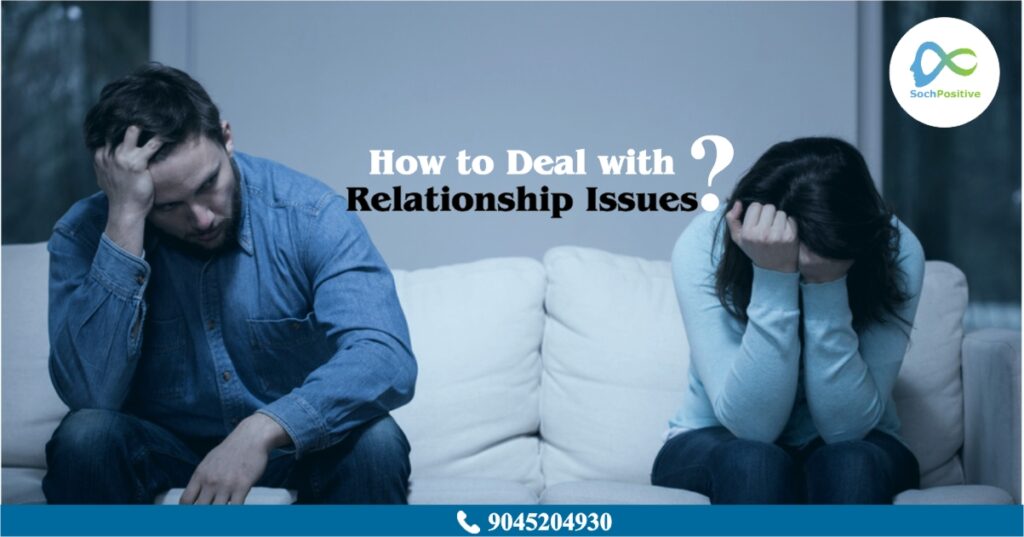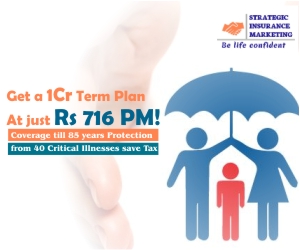By Ms. Shourya Gupta
Dealing with Relationship Issues
Your relationships have a direct effect on your mental health and your quality of life. Good relationships enable you to enjoy your life, work, and other daily life activities. However, bad relationships do the total opposite. If you have a troubled relationship with your partner, it directly affects your mood, felt emotions, concentration and productivity adversely. In short, troubled relationships affect your mental health adversely.
Here are some warning signs that your relationship may be in trouble –
1. There are repeated instances of critical, blaming, sarcastic, disrespectful, or manipulative comments.
2. There is an inflexibility or repeated unwillingness to compromise on decisions, such as social activities, chores and having children.
3. There is selfishness with own feelings and needs, without any concern and support for the partner.
4. There is a pattern of withholding communication, affection, or sex.
5. There are prolonged arguments and fights that do not get resolved easily.
6. You keep secrets from each other.
7. Showing aggressive or passive-aggressive behaviour, like breaking things in anger.
8. Having a controlling behaviour, including giving unwanted advices or ordering.
9. Use of drugs or alcohol that impacts the relationship.
10. Deliberately not spending much time with each other in order to avoid fights or arguments.
11. There are persistent resentments, judgements, or disappointments.
12. Breakdown of trust caused by numerous things, such as dishonesty, using personal information against partner, unreliability, broken promises, violating personal boundaries or infidelity.
Ways to deal with Relationship issues –
1. Communicate well
Good communication is a fundamental part of a healthy relationship. When you experience a good emotional connection with your partner, you feel safe and happy. And when people stop communicating well, they stop relating to each other well, and the times of change or stress can increase these communication gaps.
Each relationship has its own challenges. Communicating with your partner about what disturbs you could be a great first step to resolving issues. While it may be difficult to start a conversation, you can practice assertive communication skills to get your point across and start a conversation. One strategy could be asking your partner a relevant question, listening to their response, then offering your opinion. Once you have listened, you can then offer your side of the story.
While being honest with your partner may not be easy, it can help to work out your problems together. Remember that all relationships have their ups and downs, but going through a rough patch does not mean it has to end. Communication is the key to resolve all the conflicts.
2. Be a good listener
There is always a great deal of emphasis given on talking about your concerns and feelings, but your partner also wants the same, they also want to be heard about their concerns. So, intead of being a talker always, try being a good listener too. If you can learn to listen in a way that makes another person feel valued and understood, you can build a deeper, stronger connection with them. Being a good listener does not mean that you have to agree with your partner on all the things or change your mind about something. But it will help you find common points of view that can help you to resolve conflicts.
3. Manage your own stress levels
When you are stressed because of something, you are likely to misunderstand what your partner is trying to communicate. In that state, you might make some comments out of irritability that you might regret later. To avoid such regrets, it is better to manage your own stress levels first, calm yourself down and then get into any conversation to avoid conflict and misuderstandings.
4. Respect your differences
It is important to respect your differences in a relationship. You might find that the differences in culture, religion or opinion can be the source of difficulties in relationships. Instead of ignoring or blaming the unfamiliar, make an effort to understand them and come to a workable conclusion.
5. Spend quality time together
As time goes by, the demands of work, family and other obligations make it harder to find a quality time to spend with each other. Many couples feel that the spark in their relationship has faded. Here is how you can work on that –
Commit to spending some quality time together on a regular basis. No matter how busy you are, take a few minutes each day to put aside your work and electronic devices, stop thinking about other things, and really focus on connecting with your partner.
Find something that you enjoy doing together, it can be a dance class, daily walk, or sitting over a cup of tea or coffee in the evening.
Try something new together. Doing new things together can be a fun way to connect and keep things interesting. It can be as simple as trying a new restaurant, joining gym together or going on a short trip to a place you have never been before.
Focus on having fun together. Couples are often more fun and playful in the early stages of a relationship. However, this playful attitude can sometimes be forgotten as life challenges start getting in the way or old resentments start building up. Keeping a sense of humour can actually help you get through tough times, reduce stress and work through issues more easily. Thinking about playful ways to surprise your partner, like bringing flowers or any random thing they like for them or unexpectedly booking a table at their favourite restaurant.
6. Focus on your self-care
Whether your relationship issues are big or small they can have a huge impact on your mental and physical health. Thus, it becomes very important to make yourself a priority and indulge into some self care. Find things that really make you happy. It can be anything like baking, cooking, spending time with a pet, playing with children, a therapeutic massage, catching up with old friends or reading a book. It is really important to look after yourself and find stuff to build into your daily life. This can increase your ability to cope with stress and make you better at managing conflict in your relationship.
7. Learn how to respectfully resolve conflict
Conflict is something that is unavoidable in any relationship, but to keep a relationship strong, both people need to feel that they are being heard. The goal is not to win but to maintain and strengthen the relationship. Here is how it can be done –
Make sure you are fighting fair. Keep the focus on the issue at hand. Do not start arguments over things that cannot be changed.
Use “I statements” to communicate how you feel. For example, instead of saying, “You make me feel bad” try “I feel bad when you do that”.
Do not drag old arguments. Rather than looking to past conflicts or grudges and blaming for them, focus on what you can do in the present to solve the problem.
Be willing to forgive. Resolving conflict is impossible if you are unwilling or unable to them.
Know when to let something go. If a conflict is going nowhere, you may choose to disengage and move on.
8. Learn to give and take in your relationship
If you expect to get what you want 100 per cent of the time in a relationship, you are setting yourself up for unrealistic expectations and disappointment. Healthy relationships are built on compromise. However, it takes work on each person’s part to make sure that there is a reasonable exchange. It is important to consider your partner’s needs in taking any decision and on the same time it is necessary for them to understand and consider your needs. Do not make winning your goal, if you approach your partner with the attitude that things have to be your way, it will be difficult to reach a compromise and conflicts would arise. It is alright to have strong opinions about something, but your partner also deserves to be heard. Be respectful of the other person and their viewpoint.
9. Consider what is best for you
While it is normal to experience the ups and downs in a relationship, but if you are experiencing bigger issues like verbal and physical abuse, consider thinking about whether the positives of your relationship outweigh the negatives or not. If the negatives outweigh the positives, then it is wise to move out of the relationship.
Relationship troubles can sometimes leave you with feelings of low mood and self-worth. If you find yourself being persistently sad, disturbed or irritatable then consider seeing a mental health professional. It can help you focus on you and what you need, by tackling your negative thoughts and talking through your relationship problems.








